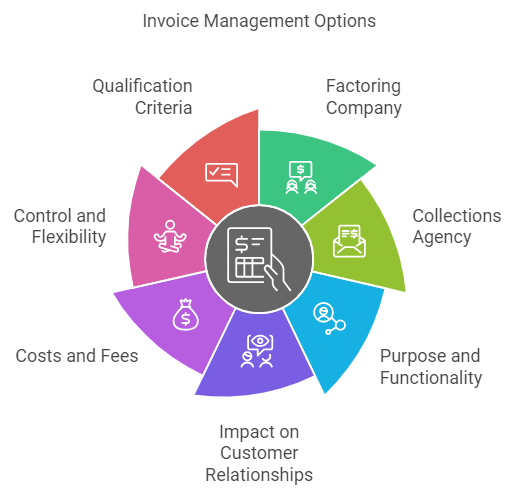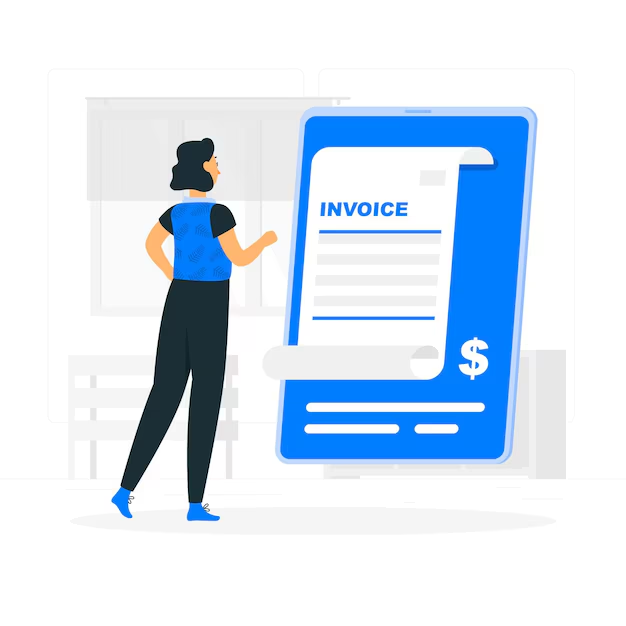For many Philippine businesses, waiting endlessly for customers to pay their invoices can create significant cash flow challenges, especially when dealing with extended payment terms. Hence, selling their invoices, also known as invoice factoring or accounts receivable financing, offers a practical solution for them to resolve this problem.
By selling their outstanding invoices to a factoring company, businesses can quickly access the cash tied up in unpaid invoices, thereby improving their cash flow and allowing them to meet their immediate financial needs.
To make the entire concept of how to sell your invoices in the Philippines much clearer, in this article, we will explore various critical elements involved in the process, such as its benefits and drawbacks, and much more.
Moreover, we’ll also discuss how it can prove to be a strategic tool to enhance liquidity and support the financial stability of businesses struggling financially in the Philippines.

What Does it Mean to Sell Your Invoices, And Why is it Important For Philippines Businesses?

Invoice factoring, also known as accounts receivable factoring, is a financial transaction in which a business sells its outstanding invoices to a factoring company at a discount. This process allows the business to quickly access cash that would otherwise be tied up in unpaid invoices.
Here, this is how it typically works in the Philippines -
- Invoice Issuance: The business provides goods or services to a customer and issues an invoice with payment terms, usually ranging from 30 to 90 days.
- Selling the Invoice: Instead of waiting for the customer to pay, the business sells the invoice to a factoring company, and in return, the factoring company pays the business a percentage of the invoice value upfront, typically around 70-90%.
- Customer Payment: The factoring company then takes over the responsibility of collecting the payment from the customer. When the customer pays the invoice, the factoring company dispatches the remaining balance to the business minus a factoring fee.
- Factoring Fee: The factoring company charges a fee for this service, which is usually a small percentage of the invoice value. This fee varies based on the creditworthiness of the customer, the amount of the invoice, and the duration the invoice is outstanding.
Also Read: Choosing the Right Business Loan for Your Company's Growth
Benefits of Invoice Factoring For Philippine Businesses - Why Should You Sell Your Invoices
Facing cash flow challenges? Invoice factoring could be the solution your business needs, as it involves selling your unpaid invoices to a factoring company that provides immediate cash to keep your operations running smoothly.
For businesses in the Philippines, invoice factoring offers numerous benefits, from improved liquidity to reduced credit risk. Here, take a look at why you should consider selling your invoices and how it can help your business thrive -
1. Immediate Cash Flow
Cash is the lifeblood of any business, and through invoice factoring, businesses can gain immediate access to cash by converting unpaid invoices into working capital. This allows businesses to meet operational expenses, invest in growth opportunities, and avoid the potential effects of cash flow shortages.
2. Credit Risk Protection
One of the underrated benefits of invoice factoring is the protection it offers against credit risks. When you factor in your invoices, the factoring company assumes the risk of non-payment, meaning you can focus on running your business without worrying about bad debts.
3. Growth Without Debt
Unlike traditional loans, invoice factoring does not add debt to your balance sheet. This can improve your business’s financial health and creditworthiness, making it easier for you to secure additional funding in the future if required.
4. Improved Operational Efficiency
With immediate cash in hand, businesses can streamline their operations by negotiating better terms with suppliers, taking advantage of bulk purchase discounts, and avoiding the need for emergency loans.
5. Focus on Core Business Activities
Chasing payments can be time-consuming and stressful, so to help with this, invoice factoring companies handle the collection process, thereby allowing you to focus on your core business activities.
This not only improves your business’s efficiency but also enhances customer relationships, as you are no longer in the awkward position of chasing payments.
6. Flexibility and Scalability
Invoice factoring offers flexibility as it is not bound by fixed repayment schedules or amounts. It scales with your sales, so the more you sell, the more funding you can access, and because of this very reason, it proves to be an excellent option for growing businesses, especially the ones with fluctuating cash flow needs.
7. Access to Expertise
Factoring companies often provide valuable insights and advice on credit management and collection strategies, as they can be particularly beneficial for small businesses that lack in-house expertise in these areas.
Also Read: Understanding Cash Flow: Its Importance and How It Works in Business
Speed Up Your Philippine SME’s Progress with N90’s Fast Financing Solutions! Secure the funds you need quickly and easily. Apply online today and get potential approval within 24 hours.
Drawbacks of Selling Your Invoices in Philippines

Thinking about selling your invoices to improve cash flow? Invoice factoring can be a valuable tool for improving cash flow, but it's not without its drawbacks, such as the costs involved, its potential impact on customer relationships, loss of control, and the qualification criteria required, are some of the important factors to consider.
However, before you decide to sell your invoices, first weigh these drawbacks against the benefits to determine if invoice factoring is the right solution for your business or if you are better off looking at other alternative solutions.
Here are some key considerations for businesses in the Philippines to take a look at before they decide to jump into the world of invoice factoring -
1. Cost Implications
Invoice factoring comes with fees and interest rates that can be higher than traditional financing methods. These costs can eat into your profits, especially if you rely heavily on factoring as a primary financing source for your business.
2. Impact on Customer Relationships
When you sell your invoices, the factoring company takes over the collection process. This change can sometimes be unsettling for your customers, who might feel pressured or uncomfortable dealing with a third party. That is why maintaining a good relationship with your clients is crucial, as this shift might strain those bonds.
3. Loss of Control
Factoring companies often have specific processes and policies in place for collections. This means you might lose control over how collections are handled, which can impact not only your business operations but your overall customer experience as well.
4. Qualification Criteria
Factoring companies typically look for businesses with creditworthy customers and consistent sales volume, which is why not all businesses qualify for invoice factoring. If your business or your clients don't meet these required criteria as well, you might face challenges in securing factoring services.
5. Long-Term Dependency
Over-dependency on selling your invoices is never a good sign for your business. If your business continuously sells invoices to manage cash flow, it might become challenging to transition later on to a more sustainable financial practice in the long run.
6. Hidden Fees and Complex Contracts
Factoring agreements can be complex as they come with various hidden fees and strict terms that might not be immediately visible to businesses, especially those that are approaching this method for the first time.
Hence, it is a good idea to always thoroughly review and understand the contract terms before proceeding to avoid any unexpected costs or obligations to pop up at the last minute.
7. Potential for Lower Advances
While invoice factoring provides immediate cash, the advance rate, which is the percentage of the invoice value you receive upfront, might be somewhat lower than initially expected.
This usually happens because factoring companies typically hold back a percentage of the invoice until the customer pays in full, which can limit the amount of working capital you will eventually receive.
8. Creditworthiness of Clients
The success of invoice factoring largely depends on the creditworthiness of your customers, so if your clients have poor credit or a history of late payments, factoring companies may charge higher fees or refuse to factor those invoices altogether.
Also Read: Types and Methods of Inventory Management Systems with Examples
Factoring Company Vs a Collections Agency - Which One Should You Sell Your Invoices To
When struggling with unpaid invoices, a Philippine business normally has two options: selling your invoices to a factoring company or engaging a collections agency. While both can help improve your cash flow, they serve different purposes and have distinct implications.
Here, let us break down the differences between the 2 top choices to help you make the right financial decision for your Philippine Business’s future and continued progress -

1. Purpose and Functionality
Selling invoices to a factoring company involves obtaining immediate cash flow by selling your unpaid invoices at a discount. The factoring company advances a portion of the invoice value upfront and takes over the responsibility of collecting payments from your customers.
In contrast, selling invoices to a collections agency is typically a last resort to recover outstanding debts, as collections agencies do not provide upfront cash but instead focus on retrieving overdue payments by utilizing aggressive tactics, charging a fee or taking a percentage of the recovered amount.
2. Impact on Customer Relationships
When you sell invoices to a factoring company, the impact on customer relationships can be relatively minimal if the factoring company handles collections professionally. However, some customers might still feel uneasy about dealing with a third party, which could potentially strain relationships.
On the other hand, involving a collections agency can significantly harm customer relationships due to the aggressive collection methods often employed. This approach is more likely to cause customer dissatisfaction and damage the business's reputation, making it a less desirable option for maintaining long-term client relationships.
3. Costs and Fees
Factoring companies charge fees for their services, which typically include a percentage of the invoice value and interest on the advance. These costs can be higher than traditional financing but are often justified by the immediate cash flow benefits they provide.
Collections agencies, however, charge a fee based on the amount recovered, which can be substantial, especially if the debt has aged significantly.
While collections agencies might not charge upfront fees, the percentage they take from recovered funds can be considerably higher than the fees associated with invoice factoring, in a way making collections a more expensive option in the long run.
4. Control and Flexibility
Selling invoices to a factoring company allows businesses to have more control and flexibility in managing their finances. Businesses can also choose which invoices to factor in and maintain control over their cash flow, as factoring companies typically work within the framework of the business's existing credit policies and customer relationships.
Conversely, selling invoices to a collections agency relinquishes control over the collection process. In simple terms, the business loses influence over how debts are pursued, which can lead to less favorable outcomes for customer relationships and overall brand perception.
This is because collections agencies usually operate independently, which means they prioritize recovering debts over maintaining customer goodwill.
5. Qualification Criteria
Factoring companies often have specific qualification criteria, such as the creditworthiness of customers and a consistent sales volume. They prefer to work with businesses that have reliable invoicing practices and reputable clients.
However, as good as the qualification criteria are, it can limit the accessibility of factoring for some businesses.
Collections agencies, in contrast, are typically willing to take on any debt, regardless of the business's or customer's financial standing, as long as there is a chance of recovery.
This characteristic makes collections agencies more accessible to Philippine businesses than factoring companies, but it also reflects the last-resort nature of their services, as they often deal with higher-risk, less reputable accounts.
Also Read: Understanding Positive Cash Flow: Meaning, Importance, and Strategies to Generate It
How To Sell Your Invoices in Philippines - A Step-By-Step Guide For Philippine Businesses To Follow

Are you and your business struggling with persistent cash flow issues? Selling your invoices, also known as invoice factoring, can be an effective solution for businesses in the Philippines.
This process allows you to convert unpaid invoices into immediate working capital, providing the liquidity needed to manage operations and fuel growth.
Here’s a straightforward guide to help you sell your invoices efficiently in the Philippines -
1. Identify Suitable Invoices
Start by identifying the invoices you want to sell by focusing on invoices from creditworthy clients with good payment histories.
Factoring companies usually prefer invoices that are not overdue and are from reputable businesses, as this guarantees a higher chance of acceptance and better terms for your factoring agreement.
2. Research Factoring Companies
Research and compare factoring companies operating in the Philippines, and look for firms with good reputations, offering favorable terms, and having good industry experience.
You can do this by checking reviews, asking for references, and ensuring the company aligns with your business needs and values, as a thorough comparison will help you select the most appropriate, reliable partner.
3. Prepare Necessary Documentation
Gather all required documentation before approaching a factoring company. The documents typically include copies of the invoices you wish to sell, proof of delivery or service completion, client contracts, and your business's financial statements.
Being in possession of these documents will streamline the application process for you and improve your chances of approval.
4. Submit Your Application
Submit your application to the chosen factoring company, and make sure the application includes detailed information about your business, its clients, and the invoices you want to factor in.
Moreover, be prepared to answer questions and provide additional documentation if requested, as a complete and accurate application will make way for a quicker approval process.
5. Negotiate Terms and Fees
Once your application is approved, discuss the terms and fees with the factoring company, and pay attention to the advance rate, discount rate, and any additional fees involved.
Negotiate the terms offered if needed to ensure they are favorable for your business and its needs. Understanding all costs and terms upfront will help you avoid unexpected expenses later.
6. Sign the Factoring Agreement
Review the agreement carefully and ensure all terms are clear and acceptable. This contract outlines the terms of the arrangement, including the sale of invoices, payment schedules, and responsibilities of both parties.
After you have thoroughly gone through the terms offered and agree on them, sign the factoring agreement, as signing the contract will formalize the partnership with the factoring company.
7. Receive Your Funds
Once the agreement is signed, the factoring company will advance you a percentage of the invoice value, usually within 24-48 hours. This immediate cash infusion can be used to manage operational expenses, invest in growth, or cover any financial gaps.
The remaining balance, however, minus the processing fees, will be paid to you once the invoice is collected.
8. Monitor and Manage the Relationship
It is important to maintain a good working relationship with the factoring company by monitoring the factoring process and managing communication.
Doing this ensures that your clients are always informed about the changes in payment details and continue to deliver high-quality products or services.
Regularly review the factoring arrangement to ensure it continues to meet your business needs.
Conclusion
As we have seen from this detailed article, selling your invoices can be a strategic move to enhance your business's cash flow, as it provides immediate access to funds that might otherwise be tied up in receivables.
You can convert unpaid invoices into working capital by partnering with a reliable factoring company that will enable you to meet operational expenses, invest in growth, and maintain financial stability. While it is essential to weigh the costs and benefits involved in the process, the immediate liquidity and reduced credit risk often outweigh the drawbacks.
So, it is safe to conclude that if cash flow challenges are holding your business back, consider invoice factoring as a viable solution to keep your operations running smoothly and support your business growth.
Frequently Asked Questions (FAQs)
1. How do you turn unpaid invoices into cash?
To convert unpaid invoices into cash, consider these options -
- Invoice factoring: Sell invoices to third-party members for immediate cash, minus a fee.
- Offer discounts: Encourage early payment by offering discounts.
- Stronger collections: Implement effective collection policies and regular follow-ups.
- Line of credit: Use a line of credit to bridge cash flow gaps.
- Asset-based lending: Borrow against the value of your invoices as collateral.
2. How do I get customers to pay my invoice?
To encourage timely invoice payment, consider the following actions -
- Clear and detailed invoices: Ensure accurate information and easy payment options.
- Strong customer relationships: Build trust and open communication.
- Prompt invoicing: Send invoices immediately upon completion of work.
- Payment reminders: Gentle reminders can prevent overdue payments.
- Incentives: Offer discounts for early payment.
- Late fees: Clearly state late payment penalties.
- Collection efforts: Politely and persistently follow up on overdue invoices.
3. How to build a cash flow?
Building strong cash flow involves following these processes in the Philippines -
- Increasing revenue: Boost sales, offer additional services, or raise prices strategically.
- Managing expenses: Cut unnecessary costs, negotiate better deals with suppliers, and optimize operations.
- Efficient invoicing: Send invoices promptly and offer incentives for early payment.
- Effective collections: Implement robust collection policies to reduce overdue payments.
- Working capital management: Optimize inventory, accounts receivable, and accounts payable.
- Financial planning: Create a cash flow budget to anticipate needs and surpluses.
4. Which strategy is the best to improve cash flow?
Philippine businesses can accelerate cash inflow effectively, reduce the risk of late payments, and improve their overall financial health by giving customers incentives to pay their invoices sooner.
Offering discounts for early payment is an effective strategy that Philippine businesses can utilize to improve cash flow.













